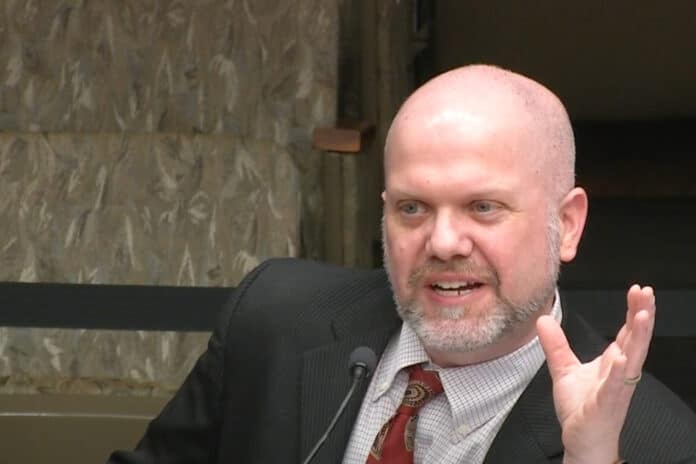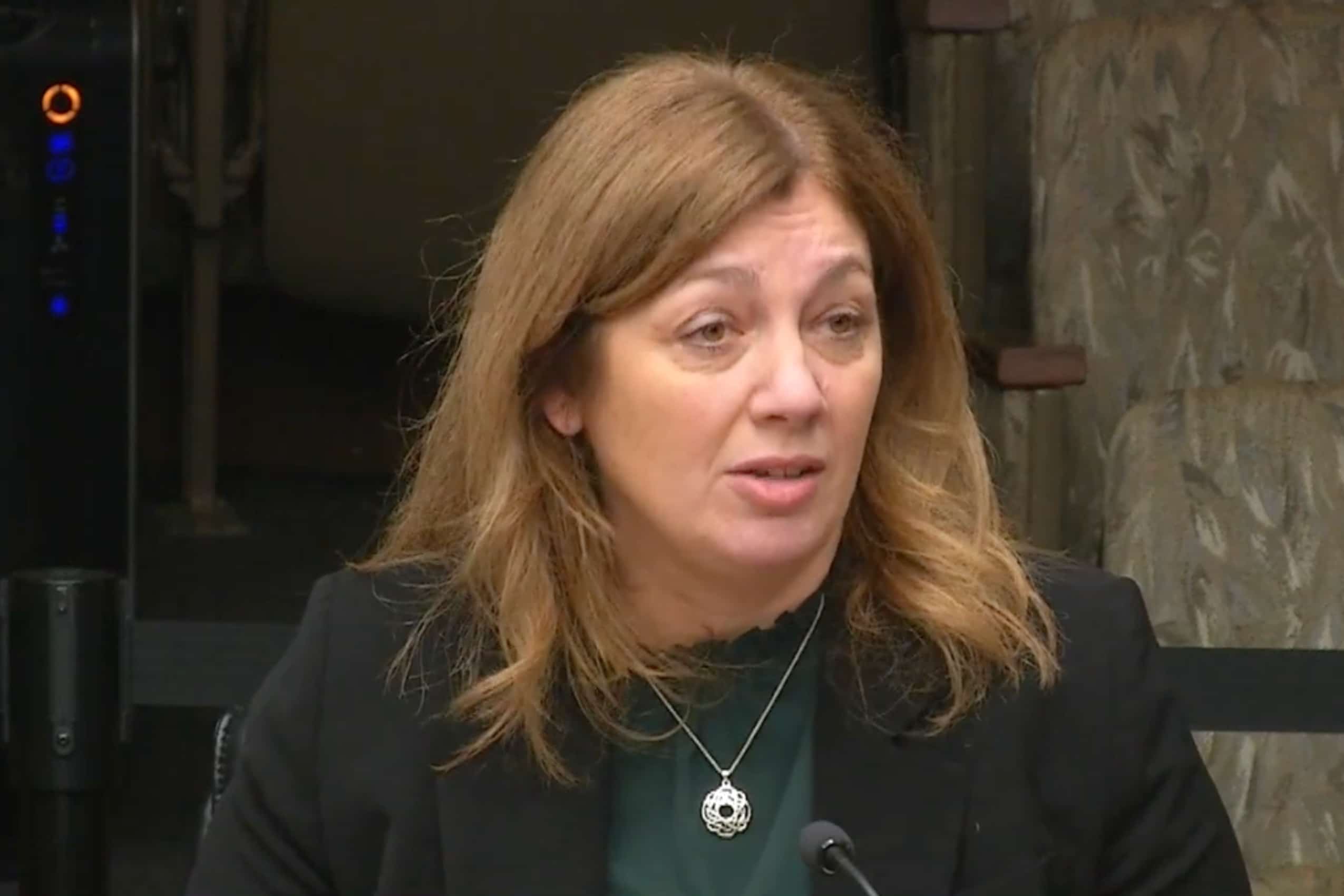
The chair of the Minnesota House Elections Committee introduced a bill this week that would give people without an official residence wider latitude to register to vote.
One of several provisions in HF3557, sponsored by Rep. Mike Freiberg, DFL-Golden Valley, would allow people filling out a voter registration application to write down a “physical description of the location of their residence, if the voter resides in an area lacking a specific physical address.”
Freiberg told members of the House Elections Finance and Policy Committee on Wednesday that “providing a physical description of where a voter resides is currently permitted on the federal (voting) registration application, and this change makes this clear on Minnesota’s form.”
It would apply only in instances where a residence lacks a traditional street address. Freiberg cited some instances where tribal nations have residents who live in homes that have no physical address, along with people who are residents of Minnesota but do not have a specific address where they reside due to being “unhoused.”
While the committee did not vote on the legislation, Freiberg said he intends to include the bill in a potential omnibus bill later this session. The bill comes on the heels of a historic 2023 legislative session that included party-line passage of several new election reforms Gov. Tim Walz signed into law, despite receiving no support from Republican legislators in both the House and Senate.
Some in the committee questioned whether language allowing someone registering to vote to include a dwelling location that lacks an address could open polling locations to greater potential for voter fraud.
“I am really, really struggling with this language that we are now not requiring a specific address (for voting registration),” said Rep. Pam Altendorf, R-Red Wing. “How can you look the Minnesota public in the eye and say, ‘This is fair, it’s going to enforce our elections and make them more secure?’”
“Very easily,” Freiberg replied. “There are people who are unhoused who have as much of a right to vote as anybody.”
The provision is included along with a number of other tweaks in the bill related to voter registration statutes that were requested by the Secretary of State’s Office.
“Right now, if someone is unhoused, really the only way for them to be manually precincted is to come into the (the Secretary of State of county elections) office to register to vote,” said Nicole Freeman, government relations director for the Secretary of State. ‘And so this is a way to try to allow the forms to come in in other methods.”
Also included in the bill is an amendment to voter registration related to post-secondary students that would allow universities and colleges to submit residential housing lists to local election officials that can be used for helping identify and assign a precinct location to students living on a college campus. The voter may then prove their residence “by presenting a current valid photo identification issued by a postsecondary educational institution in Minnesota,” according to the bill language.
Bill requiring political action committees for local elections to register with state campaign finance board
The bill was introduced the same day as a proposal by Rep. Nathan Coulter, DFL-Bloomington, that would require political action committees and funds that spend on local elections to register and file reports with the state campaign finance board.
Coulter told legislators during the Wednesday hearing that HF3645 would bring “transparency and openness to political committees and funds that spend on candidates for local office and local ballot questions.”
“All of us I am sure have seen the changes that have happened as local issues become increasingly unlocalized and, for the lack of a better term, politicized,” Coulter, a former Bloomington City Council member and DFL legislative aid, said. “In many ways local candidates and ballot questions have the most direct effect on our neighbors’ lives. It is important Minnesotans know who is attempting to influence these elections.”
The hearing featured just one testifier. Julie Greene, a former Edina School Board member and DFL candidate for House District 50A, said she supports the bill because she experienced firsthand having to contend with a short-lived political action committee that she says spent more than $3,000 to campaign for one of her school board opponents.

Greene raised more than $10,000 for her 2019 school board campaign, according to campaign finance reports. That doesn’t include the campaigning that the local chapter of Education Minnesota did on Greene’s behalf, after she received the teachers union endorsement. Greene didn’t mention this during her legislative testimony. But Rep. Ben Davis, R-Merrifield, asked how Education Minnesota campaigning on behalf of candidates or ballot questions would be impacted by the requirements of the bill.
“Education Minnesota and any other organization that spends any kind of money in any local election would need to register with the state campaign finance board,” Coulter said.
The bill was laid over for inclusion in a possible omnibus bill.
Hank Long
Hank Long is a journalism and communications professional whose writing career includes coverage of the Minnesota legislature, city and county governments and the commercial real estate industry. Hank received his undergraduate degree at the University of Minnesota, where he studied journalism, and his law degree at the University of St. Thomas. The Minnesota native lives in the Twin Cities with his wife and four children. His dream is to be around when the Vikings win the Super Bowl.











